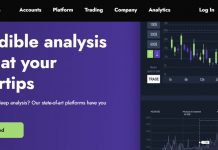Dollar makes ground despite mixed employment report
 Fridays data in the U.S. proved a long-held theory that that is no such thing as a “normal” reaction in this market.
Fridays data in the U.S. proved a long-held theory that that is no such thing as a “normal” reaction in this market.
The previous two releases of employment data had both shown 200k+ new jobs created. The August report, released with seemingly undue haste, showed that just 156k new jobs were added and the July figure was revised down by close to 10%. In “normal” circumstances, this would have pushed the dollar lower, particularly considering the recent strength of the single currency. However, traders are willing to believe that any shift in monetary policy is likely to happen in the U.S. long before the Eurozone.
Sterling recovered a little over the week. Against the dollar it is still shy of the 1.3000 level and versus the single currency it has risen to 0.9150.
The Euro, which has risen by 6% since June, has been due a correction for some time as its overbought status has become ever more stretched. The ECB meets later this week and despite the expectation of dovish comments from ECB President Draghi, the foundations for a stronger currency remain.
North Korea on collision course with U.S.
 Global tension and risk aversion were both ratcheted up a few notches over the weekend as North Korea performed an underground nuclear test, its sixth, just sixty miles from the Chinese border and announced it had now developed a missile and warhead capable of reaching the U.S.
Global tension and risk aversion were both ratcheted up a few notches over the weekend as North Korea performed an underground nuclear test, its sixth, just sixty miles from the Chinese border and announced it had now developed a missile and warhead capable of reaching the U.S.
America retorted by saying that any threat to its mainland, territories or allies would be met with a massive and devastating military response.
China where the blast was felt reacted in an only slightly more muted manner. In an official release, they called for calm and are considering the potential humanitarian crisis should military action ensue.
The Yen rallied below 110.00 versus the dollar but continued sabre rattling will have negligible effect until it develops into something more.
Elsewhere, there are rate setting meetings in both Australia and Canada this week. Australia is likely to remain on hold although the RBA has confirmed that rates have bottomed out. Data has been a little inconsistent recently. The BoC raised rates at its last meeting and the surprisingly strong Q2 GDP number could lead to a further hike this week.
Error, group does not exist! Check your syntax! (ID: 4)
Brexit and Politics; tough to compete with
 The U.K. Parliament returns from its summer recess this week and immediately gets down to business starting a debate on the abolition of the Act that led the U.K. into what has become the EU. The opposition Labour Party has already said it will oppose the Bill as it is presented. Given the slim majority the Government possesses, it will only take a rebellion from a few Conservative MP’s for the Government to be defeated and the entire process to be thrown into further disarray.
The U.K. Parliament returns from its summer recess this week and immediately gets down to business starting a debate on the abolition of the Act that led the U.K. into what has become the EU. The opposition Labour Party has already said it will oppose the Bill as it is presented. Given the slim majority the Government possesses, it will only take a rebellion from a few Conservative MP’s for the Government to be defeated and the entire process to be thrown into further disarray.
The two senior negotiators, David Davis and Michel Barnier have shown antipathy for each other which is growing and cannot bring a harmonious conclusion to the negotiations.
Barnier has said the population of the U.K. is unaware of the seriousness of leaving the single market and he promised to educate them. Davis on the other hand has ridiculed Barnier’s comments that very little progress has been made in negotiations labelling his comment as a negotiating tactic to blackmail the U.K. over the exit bill.
It was reported in the weekend papers that Prime Minister Theresa May has agreed to offer up to 50 bio. Pounds although this will be staged over several years until the proposed transition period is over.








![Reltex Group Reviews: Explore business opportunities by Trading [reltexg.com]](https://comparic.com/wp-content/uploads/2023/12/image001-218x150.jpg)
![Mayrsson TG Reviews: Why Choose Crypto-Trading with Them? [mayrssontg.com]](https://comparic.com/wp-content/uploads/2023/12/image1-218x150.jpg)








